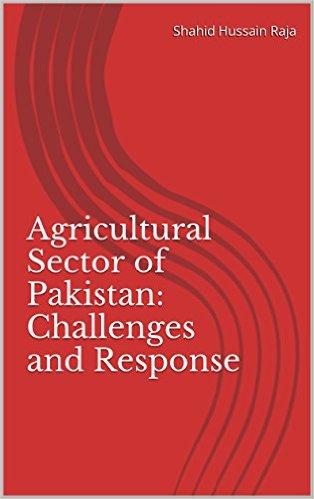
Explains the historical evolution of Pakistan's agricultural sector and carries out its SWOT Analysis by describimg its major strengths and weaknesses as well as the threats it faces and the opportunities available for its growth.Then lists the challenges Pakistan's agricultural sector is facing and comes up with a detailed plan of action to face those challenges.Last part touches on the contoversial issues of land reforms and agricultural income tax.
Genre: EDUCATION / GeneralNew publication;not yet ranked very high
I am not a practising farmer. I am an absentee landlord, who just happened to be born in a family with an agricultural background. But I have frequent interaction with the farmers who till our lands. Plus I have served in the Ministry of Food and Agriculture, Government of Pakistan for nearly four years in a senior position. This gave me ample opportunities to visit the far flung areas of Pakistan and see the conditions of the farmers first hand. Besides, I had to visit different countries to attend meetings and conferences related to agricultural issues where I held very fruitful discussions with my counterparts from all over the developing countries.
This frequent interaction has convinced me that a farmer is a very unfortunate figure everywhere on earth. From Bangladesh to Burkina Faso, or from Pakistan to Peru, yes everywhere. There seems to be a systemic bias against the farmers at both the levels-state and the society. Even nature seems to be less inclined towards them. Just imagine! When broadcasting seeds for his crops, birds appear from nowhere to eat them with impunity. If his crop survives the vagaries of weather which sometimes can play havoc with his standing crops, rodents of different types are ready to have a feast on the hard earned produce of the farmers. When he takes his crops to the market for selling, there are many predators ready to pounce on the fruits of his efforts.
While the prices of agricultural commodities generally get depressed at the harvesting time more due to collusion of the vested interests than the market forces of supply and demand, the middleman will take away a sizeable chunk of his produce on one pretext or other. In fact, the middleman will have his cut in three ways. Firstly he will charge higher prices for the inputs he provides to the farmer. Secondly, he will charge usurious rates of interest for the loans he has advanced for this purpose.
| Language | Status |
|---|---|
|
Portuguese
|
Already translated.
Translated by Fabiana Rodrigues Castelo Branco
|
|
Spanish
|
Already translated.
Translated by Analía Ponce and Laura Rafaela Oroná Puebla
|
|
|
Author review: Analía Ponce translated my book Agricultural Sector of Pakistan: Challenges & Response" into Spanish. It is not only an extremely faithful translation but also done with great care and passion. I was kept informed about the progress of the translation work which was completed in the agreed time frame. Thank you very much. Regards. Shahid |